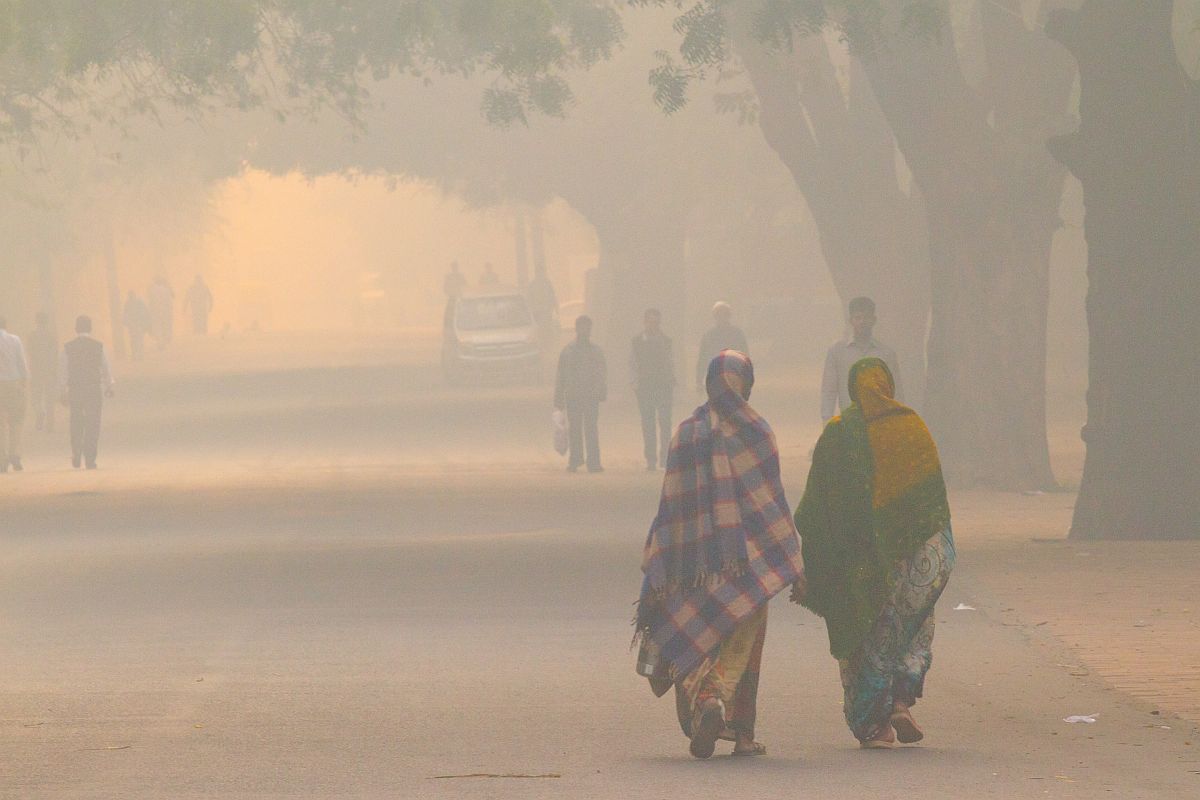More than half of the world’s Sanatanis take a holy dip at Triveni Sangam
The magnificent and sacred Mahakumbh, underway in Prayagraj since January 13, has made history today.
Delhi recorded the coldest day on Monday in last 119 years for the month of December with the day temperature recording 9.4 degrees Celsius, the India Meteorological Department said.

Photo: File Photo
Severe cold wave continued unabated in Uttar Pradesh with the minimum temperature in Kanpur touching zero degrees Celsius and state capital Lucknow recording 0.7 degrees Celsius on Monday, the meteorological department said. Meanwhile, the air quality of the neighbouring Delhi improved significantly from ‘severe’ to ‘very poor’ category on Tuesday.
Delhi recorded the coldest day on Monday in last 119 years for the month of December with the day temperature recording 9.4 degrees Celsius, the India Meteorological Department said.
Advertisement
The IMD on Tuesday said that the Delhi temperatures are expected to rise in coming days and cold wave will subside till January 4. Delhi’s maximum temperature was recorded at 11 degrees Celsius and minimum temperature was recorded at 3 degrees Celsius.
Advertisement
UP’s Bahraich recorded a low of 0.2 degrees Celsius, Jhansi recorded a minimum temperature of 1.8 degrees Celsius, followed by Barabanki at 1.6 degrees Celsius) and Furstaganj in Amethi district at 1.4 degrees Celsius.
Fatehpur recorded a low of 2.2 degrees Celsius, Sutanpur 2.4 degrees Celsius, Bareilly 2.5 degrees Celsius, Churk in Sonbhadra 2.6 degrees Celsius and Banda 3.0 degrees Celsius.
Delhi’s overall Air Quality Index (AQI) crossed 300 on Tuesday morning which falls in the ‘very poor’ category, as against 440 on Monday.
An AQI between 0-50 is considered ‘good’, 51-100 is ‘satisfactory’, 101-200 ‘moderate’, 201-300 ‘poor’, 301-400 ‘very poor’ and 401-500 as ‘severe’. An AQI above 500 falls in the ‘severe plus’ category.
Air quality levels further deteriorated in Anand Vihar, recording pollution levels at 412, making it fall in ‘severe’ category. In Ghaziabad, air quality index was 348, and in Noida it was 427.
According to System of Air Quality and Weather Forecasting and Research (SAFAR), “A fresh water disturbance is very likely to affect the region by December 31 and improve surface wind speeds and ventilation. Improvement in AQI towards higher end or the ‘very poor’ category is expected. Further improvement, to the middle of the ‘very poor’ category, is expected by January 1, 2020”.
They further advised everyone to reduce heavy exertion. People with heart or lung disease, adults and children should avoid longer or heavy exertion.
The AQI of Delhi had touched 494 in November this year, making it the highest level since it touched 497 in November 2016. In comparison, the highest AQI recorded in 2018 was 450 in December.
As Delhi residents shivered in the cold, the IMD said that the city’s mean maximum temperature in December has dipped below 20 degrees Celsius only four times in past 118 years – in 1919, 1929, and 1961 with the last in 1997.
Advertisement